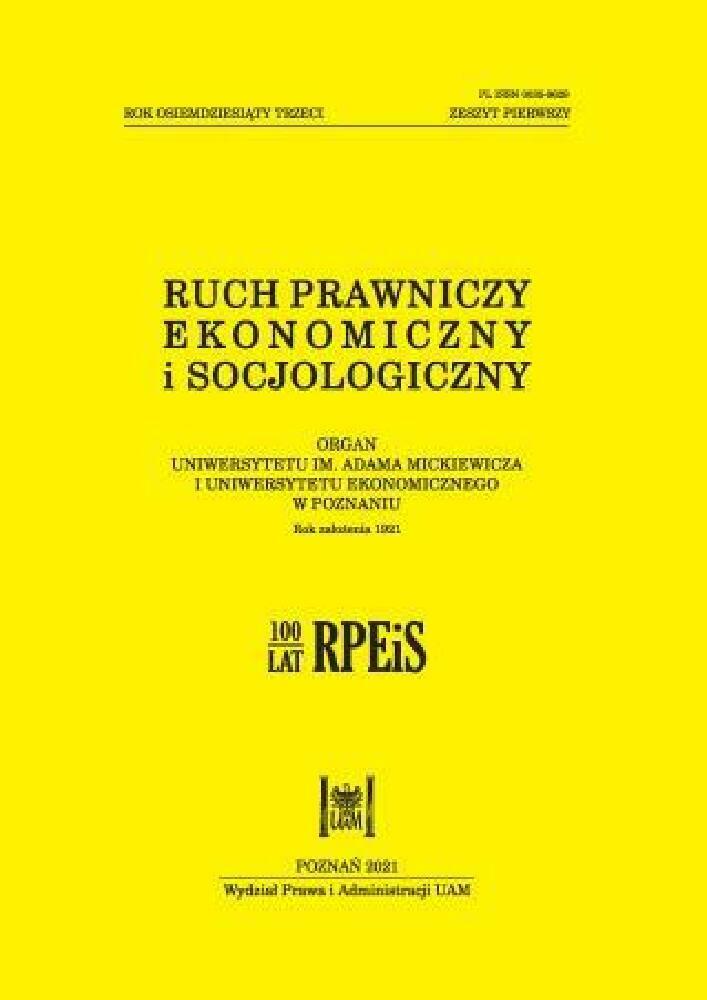Abstrakt
In Israel’s legal system, equality is a fundamental principle. LGBT people in Israel suffer from discrimination due to their sexual orientation and their right to equality, parenting, and family life is impaired. Regarding the surrogacy procedure, the Supreme Court has unequivocally stated that the relevant laws discriminate against LGBT people and their fundamental rights when compared to heterosexual people. The main problem is that the statutes block the access to the surrogacy procedure of single men and male couples, harming their right to equality, right to a family life and parenting. The article suggests adopting the minority ruling of Justice Uzi Vogelman in HCJ 781/15 and declaring the nullity of the sections in the laws that discriminate against single men and male couples. This remedy is a lawful and operative solution for the inequality rooted in the surrogacy arrangements towards homosexuals that want to establish a family and become parents. The expectation from the legislature to amend the law is unrealistic, due to the political construction of the Israeli Knesset (parliament). An innovative approach for the amendment of the inequality towards LGBT people should be the nullity of the discriminating sections of the law.
Bibliografia
Avraham, H. (2017). Parenting, surrogacy and what is between them. Laws 9: 171–209 [in Hebrew].
Ben Nae, Y. (2016). Judaism and Jews about LGBT: attitude of Jewish law and Jewish communities to homosexuals, lesbians, and transgender – historical overview, [in:] E.H, Morgenstern Y. Lushinsky, A. Harel (eds.), LGBTQ Rights in Israel: Gender Identity, Sexual Orientation and the Law, Hebrew University of Jerusalem: 117– 139 [in Hebrew].
Birenbaum-Carmeli, D. (2007). Contested surrogacy and the gender order: an Israeli case study. Journal of Middle East Women’s Studies 3(3): 21–44.
Birenbaum-Carmeli, D., Montebruno, P. (2019). Incidence of surrogacy in the USA and Israel and implications on women’s health: a quantitative comparison. Journal of Assisted Reproduction and Genetics 36(12): 2459–2469. doi:10.1007/s10815-019-01612-9
Caldwell, Ch.E. (2019). Baby got back? Enforcing guardianship in international surrogacy agreements when tragedy strikes. The University of Memphis Law Review 49(3): 858–863.
Frenkel, D.A. (2001). Legal regulation of surrogate motherhood in Israel. Medicine and Law 20(4): 605–612.
Gross, A. (2015). The politics of LGBT rights in Israel and beyond: nationality, normativity, and queer politics. Columbia Human Rights Law Review 46(2): 81–152.
Hand, J. (2006). Surrogacy in Israel: a model of comprehensive regulation of new technologies. Santa Clara Journal of International Law 4(2): 111–116.
Lipkin, N., Samma, E. (2013). From heroic act to shelf product: crawling normativity of surrogacy in Israel. Law and Government 15: 435–485 [in Hebrew].
Margaria, A. (2020). Parenthood and cross-border surrogacy: What is ‘new’? The ECtHR’s First Advisory Opinion. Medical Law Review 28(2): 412–425. <https://doi.org/10.1093/medlaw/fwz042>.
Margaletić, A., Preložnjak B., Šimović, I. (2019). Presumption of motherhood on crossroad of surrogacy arrangements in EU. EU and Comparative Law Issues and Challenges Series: 778–802.
Palmer, T.L. (2011). The winding road to the two-dad family: issues arising in interstate surrogacy for gay couple. Rutgers Journal of Law & Public Policy 8(5): 895–917.
Reuss, P.M. (2019) Surrogacy, [in:] B. Stark, J. Heaton (eds.), Routledge Handbook of International Family Law. London: 235–237.
Rivlin, E. (2012). Israel as a mixed jurisdiction. McGill Law Journal 57(4): 781–788.
Shifman, P. (2005). On the new family: opening lines for discussion. Tel-Aviv University Law Review (Iyunei Mishpat) 28: 643–670 [in Hebrew].
Smith, E.M. (2012). Viewing surrogacy through the lens of the best interests principle of the Convention on the Rights of the Child. Ave Maria International Law Journal 2(1): 68–101.
Thomale, C. (2017) State of play of cross-border surrogacy arrangements – is there a case for regulatory intervention by the EU? Journal of Private International Law 13(2): 463–473. doi:10.1080/17441048.2017.1353783
Trimminigs, K., Beaumont, P. (2016). Parentage and surrogacy in a European perspective, [in:] J.M. Scherpe (ed.), European Family Law. Volume 3: Family Law in a European Perspective. Cambridge: 232–252.
Wysocka-Bar, A. (2020). Same-sex parentage and surrogacy and their practical implications in Poland in News, Views /by Thalia Kruger, <https://conflictoflaws.net/2020/same-sex-parentage-and-surrogacy-and-their-practical-implications-in-poland>.
Zafran, R. (2015). The right to parenting in Israel – equal exercise in assistant of embryo carrying agreements? Mishpatim online 8(1): 21 [in Hebrew].
Zeira, Y., Medina, B. (2016). Not equal alone: sexual orientation, gender identity and the right to equality, [in:] E.H. Morgenstern, Y. Lushinsky, A. Harel (eds.), Gender Identity, Sexual Orientation and the Law.
Licencja
Prawa autorskie (c) 2021 WPiA UAM

Utwór dostępny jest na licencji Creative Commons Uznanie autorstwa – Użycie niekomercyjne – Bez utworów zależnych 4.0 Międzynarodowe.





